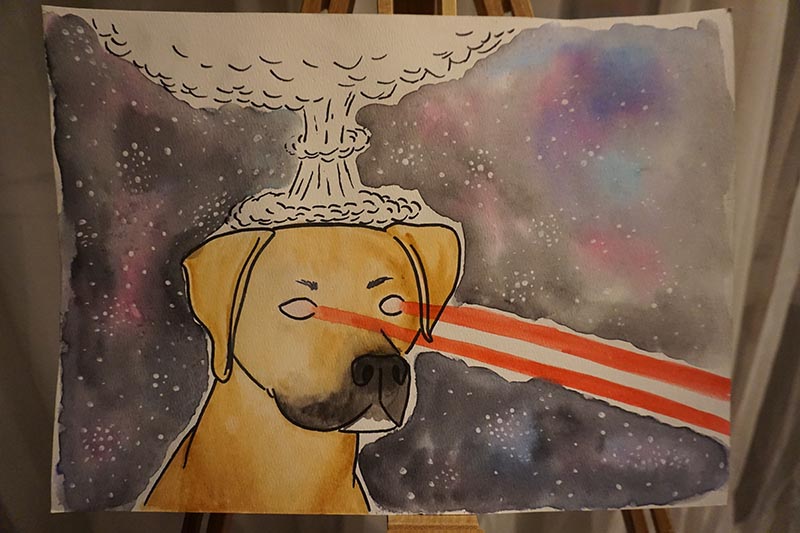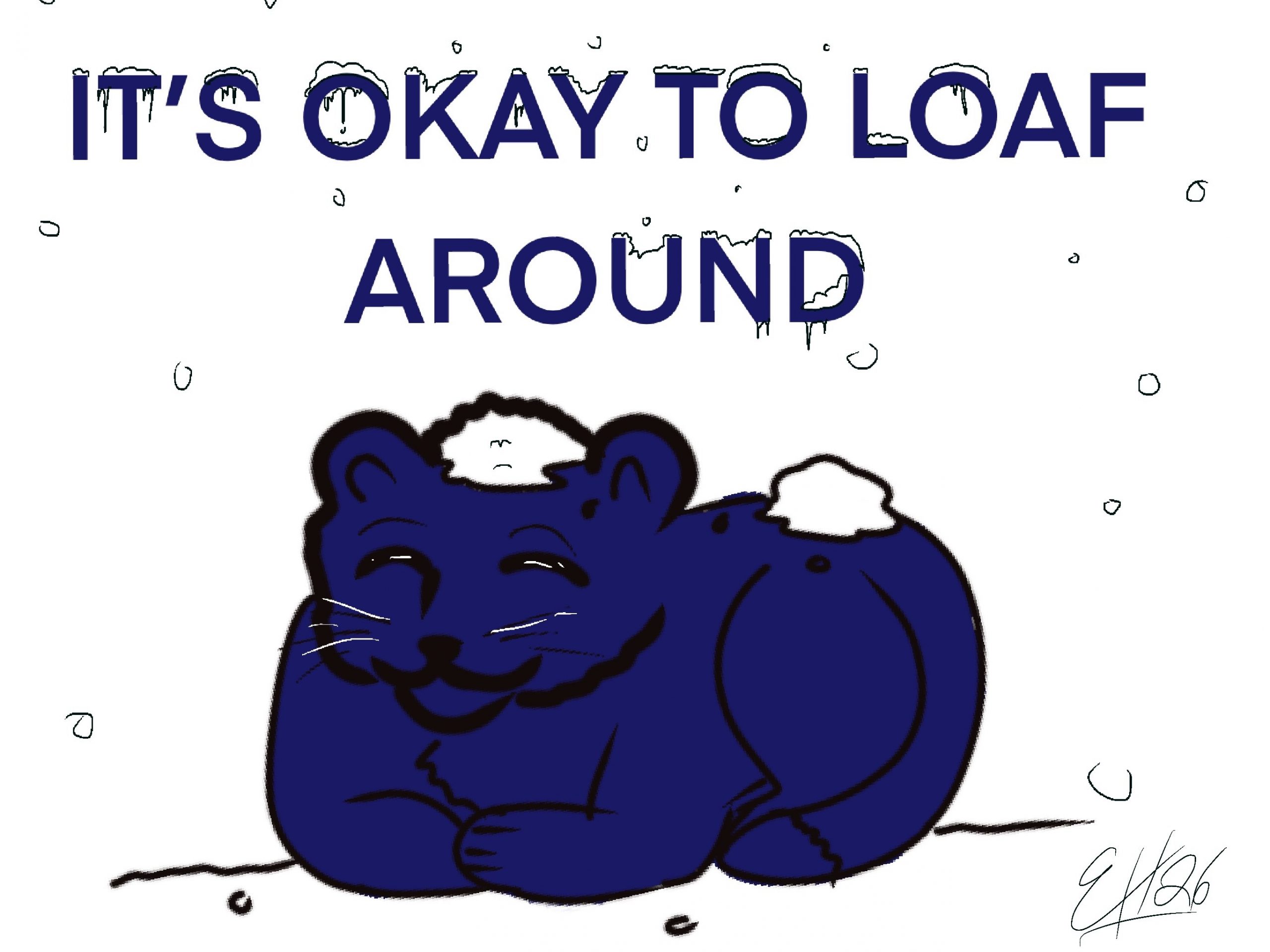By Justin Strong
In 2015’s “Hotline Bling”, Drake sings “You used to call me on my cell phone, late night when you need my love,” bemoaning a former lover’s refusal to pay attention to him. The song has been referred to as a chauvinistic, obsessive song of desire and betrayal in line with previous Drake songs; however, many have come to view the song’s female character as an iconic role model, rather than a villain. If one views the woman in “Hotline Bling” as the protagonist, and Drake’s narrator as the antagonist, of the song, she becomes a 21st century feminist heroine.

Content analysis of over 400 rap songs chosen for their misogynistic content found the theme of the distrust of women to be present in more than 47 percent of songs.
The standard reading of the song places Drake’s narrator as the protagonist of the story. Drake is a jilted lover in the long tradition of rappers who make the “mistake” of falling in love with a woman only to be heartbroken by her. A 2009 article by Ronald Weitzer and Charis E. Kubrin in Men and Masculinities sees this as one of the most common misogynistic themes in hip hop; a content analysis of over 400 rap songs chosen for their misogynistic content found the theme of the distrust of women to be present in more than 47 percent of songs[1]. For example, in “Bitches Ain’t Shit” from Dr. Dre’s seminal, massively influential album The Chronic, Snoop Doggy Dogg falls in love with a girl then ends up in jail. His friends warn him that the girl was not to be trusted, and upon his release, he is informed the woman is presently cheating on him. He states that he’s “gotta do some motherfuckin’ chin-checkin’”, implying that he is going to handle the situation violently. He then asks Dre to “pass the Glock”, increasing his previous threat from beating the girl to murdering her, and only acquiescing when he sees that the man she is with is his cousin Daz. He concludes by saying that he is “heart-broke, but still loc’d”; he is hurt by the woman’s betrayal, but still tough. These advocations of brutal recompense against women are harmful; other studies have shown that this type of depiction of violence against women increases negative attitudes toward women[2]. This relates back to and contrasts with the standard interpretation of “Hotline Bling”. Drake is more openly emotional and doesn’t threaten the girl with violence, but otherwise carries on the misogynistic tradition of accusatory distrust. However, if one reads the song with the idea that Drake’s misogyny makes him a villain, then naturally the woman becomes a heroine; that distrust becomes exaltation of a woman’s choice to be free of a controlling ex.
To understand why this character is a feminist heroine, it is important to define a positive literary depiction of a woman. Surprisingly, the song almost passes the oft-cited Bechdel Test for gender bias, which stipulates that the work must contain two women who talk to each other about something besides a man. The song meets nearly all of the criteria set forth by the test with the exception of the character’s name (a consequence of the personal, non-prosaic nature of the work). However, the Bechdel Test is a rigid, data-driven instrument that is really only intended to certify that the work in question meets the bare minimum of gender bias analysis. In fact, true feminist heroine is one who reverses the gender roles she experiences, lives her own narrative, and does not merely play a supporting role in a man’s story.[3]
Reexamining the song with these characteristics in mind, one begins to see both Drake and the woman in a different light. While Drake spends the entire song both obsessing over and deploring the pain and suffering he is experiencing because of the sinister machinations of the crafty woman, one gets the idea that his love interest has moved on completely. Drake attempts to write his desire on her, thinking that if he is fixated on her, she must be dressing provocatively and partying as an attempt to punish him for some implied slight he made against her. By talking about how she used to call him when she needed his love (whether that means sex or affection is unclear), he is trying to remind her that she needed him at one point. However, she is out in the world writing her own story; it is unlikely that Drake’s feelings ever impact her new lifestyle. Drake also reminds her of the time she spent as “a good girl.” This stands out as a loaded, misogynistic term that most often means a woman who does what a man tells her to do, when he tells her to do it[4] In this take on female subservience, a woman stays under his care, staying at home and waiting for him to return. Thus, when Drake tells his love interest that she “don’t need nobody else,” because he is already meeting all of her needs, the woman’s apparent indifference and enjoyment of her new lifestyle makes Drake appear controlling and possessive. Ultimately, Drake reveals himself as a borderline stalker, an abuser who believes that while he can go out and enjoy his life, leave Toronto and become famous, and meet other women, while also believing that it is an unconscionable betrayal for a woman to do the same to him. The Drake of “Hotline Bling” is a selfish, controlling hypocrite.
These negative traits, in turn, make Drake a foil for the female character, who shines next to her former lover. Drake complains that she has been “wearing less and going out more,” having “glasses of champagne out on the dance floor.” These may be negative qualities to a possessive man, but to a young woman, these lines describe an ideal night out. The woman Drake is singing about is having fun, taking pride in her appearance, and living a fuller life. More notably, Drake repeatedly mentions that she is “hanging with some girls [he’s] never seen before.” This may imply a threat to Drake, but for the female protagonist, it means she is building a network, making friends, and living a richer social life. She no longer allows herself to be defined by one man; she will never have to rely on one person to be her everything. It is perhaps most important that Drake says “ever since I left the city, you got exactly what you asked for.” From this line, it’s clear that this split had been coming, and that the woman had already been wanting more from her life than Drake could, or was willing, to give her. Now, she is travelling, “running out of pages in her passport,” living only for herself. She is self-actualizing, living a lifestyle that is incompatible with being one man’s possession.
This ties in with current cultural subversions of sexist gender norms. The fourth-wave movement of feminism, generally understood to have begun around 2008[5], combines a focus on intersectionality and sex positivity with the idea that “the personal is political,” meaning that many problems, such as many problems women face individually are not just personal problems but widespread issues resulting from the unequal treatment women face[6]. Many fourth-wave feminists are in the 12-35 age range; this is significant, as it means that, for many of them, the internet has been a part of their lives since childhood and shaped how they think and communicate. They are able to take advantage of social media to network and share thoughts and experiences in a way that previous generations have not[7]. Like others their age, many fourth-wave feminists see media not just as entertainment but as a way to define themselves, organizing into fandoms based on television shows or books; however, they are conscious of sexism in the media they consume, seek better representation for women and are critical of poor or sexist representations. A fourth-wave feminist believes in the importance of a fictional female character being strong not only in how they relate to men, but in how they handle all aspects of their life. They see standing up to abuse and sexism perpetrated by men to be equally as important as building a strong network of other women or being open about liking one’s self (often expressed through confident social media posts and selfies). While they tend to love “badass” characters, warriors and freedom fighters who are the equals of the men around them, they also love strong women who are unabashedly feminine, who overcome male oppressors not by competing with them on their territory but by surpassing the men in ways they are not prepared to compete with, such as Legally Blonde’s Elle Woods or Parks and Recreation’s Leslie Knope. Most importantly, they enjoy choosing their own heroes, and do not feel bound to only choose from the protagonists of a story; they can find admirable qualities even in villains like Game of Thrones’ Cersei Lannister. They seek female role models in a world that is neglectful to provide them. In this tradition, the supposed “villain” of “Hotline Bling” is held up as a role model for young women who celebrate the very traits Drake complains about; these fans even enshrine her in blog posts and artwork.
She is out in the world writing her own story.
But how does Drake view the song? It may be possible that the song was intended as a work of fiction, and if that is the case, it is possible Drake intended to exalt the woman by comparing her with a petty, despicable narrator. The strongest indicator that this may have been intentional is that “Hotline Bling” weakly criticizes a woman for traits that, outside of the song, are celebrated as positive. He very specifically spends most of the song talking not about traditional sexual and romantic betrayals, but about a woman who, to any rational observer, is living her best life, not attempting to slight a former lover. It is possible that the song’s lyrics are less intended to ask “why would you do this to me” than to ask “what is is wrong with me that makes me feel like this about what you’re doing”. In fact, Drake was recently hailed as a “feminist hero” for his song “Nice for What”[8]. In it, he consciously attempted to celebrate hard-working women; the song’s music video was directed by a young woman and features an all-female cast of outspoken feminist activists and celebrities. Although the song’s lyrics focus primarily on women owning their sexuality and taking care of their appearance, Drake does seem to be making a good-faith attempt at honoring independent, self-made women. It is not a stretch to say that Drake is subtly implying that he is the one with the problem, not his love interest; however, his method of thinking is entrenched in a chauvinistic culture that he perpetuates, even if he is not doing so consciously.
It depends on if one views the song as a personal expression or a work of fiction. It is widely believed that “Hotline Bling” was inspired by Zineb “Nebby” Samir, a Toronto woman Drake was romantically involved with around 2009[9]. Drake has discussed his feelings for Nebby less obliquely a number of times in his songs, mentioning her, and declaring, in no uncertain terms, his love for her. A quick perusal of Nebby’s popular Instagram account yields dozens of bikini-clad selfies in exotic locales, along with bold messages about opposing sexism and encouraging posts about loving one’s self and not letting one person define one’s happiness. It is not a stretch to imagine this Instagram account as the inspiration for Drake’s feelings (as well as an answer to the question of how Drake is keeping tabs on a woman after he has “left the city”). When read as a personal expression of Drake’s actual feelings, the song embodies a sexist and condescending way of thinking. This way of thinking can be seen in several of his other songs, where he tries to pigeonhole women into his ideal of a “good girl”. It is not hard to imagine that the song is Drake’s attempt to put Nebby in this role. However, even if it is not Drake’s intention to exalt her, Nebby still represents the ideal fourth-wave feminist heroine; she is independent, beautiful, thoughtful, and, as many of her Instagram posts demonstrate, living her best life without being a man’s possession.
In this reading of “Hotline Bling,” Drake struggles toward self-awareness while remaining unaware of his own sexist attitudes, a victim of an industry that promotes chauvinistic attitudes. He has made a career out of his “niceness”[10] and expresses his feelings in a way deemed unmasculine by the wider rap community; in an industry full of artists that regularly degrade and speak violently about women, Drake openly tries to speak the importance of valuing women. His sexism is subtler, and speaks to a young male audience that, like him, wants to show that they value women but does not understand that thinking they need to “rescue” sexually active women or that insinuating that a woman is only a “good girl” if she obeys her man conflicts with that goal. At times, Drake squanders the unique position he is in as a rapper who succeeded by expressing his feelings rather than by selling a chauvinistic fantasy lifestyle; he retains several of the sexist stereotypes and attitudes toward women from hip-hop’s past. But, as the old saying goes, even a stopped clock is right twice a day; whether intentionally or not, with “Hotline Bling”, Drake has created a feminist role model that fits perfectly with the zeitgeist that has made him a success.
[1] Weitzer, Ronald, and Charis E. Kubrin. “Misogyny in Rap Music.” Men and Masculinities, vol. 12, no. 1, 2009, pp. 3–29., doi:10.1177/1097184×08327696.
[2] Ferguson, Christopher J. “Positive Female Role-Models Eliminate Negative Effects of Sexually Violent Media.” Journal of Communication, vol. 62, no. 5, 2012, pp. 888–899., doi:10.1111/j.1460-2466.2012.01666.x.
[3] Cuhna, Darlena. “What Makes a Feminist Hero in Literature?” The Mantle, 17 Dec. 2015, www.mantlethought.org/world-literature/what-makes-feminist-hero-literature.
[4] Sloan, Kate. “Why ‘Good Girls’ in Pop Songs Are Bad for Everyone.” Teen Vogue, www.teenvogue.com/story/good-girls-pop-songs-sexism-drake-nick-jonas
[5] Phillips, Ruth, and Viviene E. Cree. “What Does the ‘Fourth Wave’ Mean for Teaching Feminism in Twenty-First Century Social Work?” Social Work Education, vol. 33, no. 7, 2014, pp. 930–943., doi:10.1080/02615479.2014.885007.
[6] Hanisch, Carol. “The Personal Is Political.” The Personal Is Political: the Original Feminist Theory Paper at the Author’s Web Site, www.carolhanisch.org/CHwritings/PIP.html.
[7] Chaudhury, Suprakash, et al. “Misogyny, Feminism, and Sexual Harassment.” Industrial Psychiatry Journal, vol. 26, no. 2, 2017, p. 111., doi:10.4103/ipj.ipj_32_18.
[8] O’Neil, Lauren. “Drake Hailed as a Feminist Hero over New Single Nice for What.” BlogTO, May 2018, www.blogto.com/music/2018/04/drake-nice-for-what-song/.
[9] Rhiannon, Alexis. “Who Is Drake’s Song ‘Hotline Bling’ About?” Bustle, Bustle, 25 Apr. 2018, www.bustle.com/articles/106744-who-is-hotline-bling-about-drake-might-be-singing-to-a-familiar-girl-from-his-past.
[10] Singh, Kris, and Dale Tracy. “Assuming Niceness: Private and Public Relationships in Drakes Nothing Was the Same.” Popular Music, vol. 34, no. 01, 2014, pp. 94–112., doi:10.1017/s0261143014000671.





